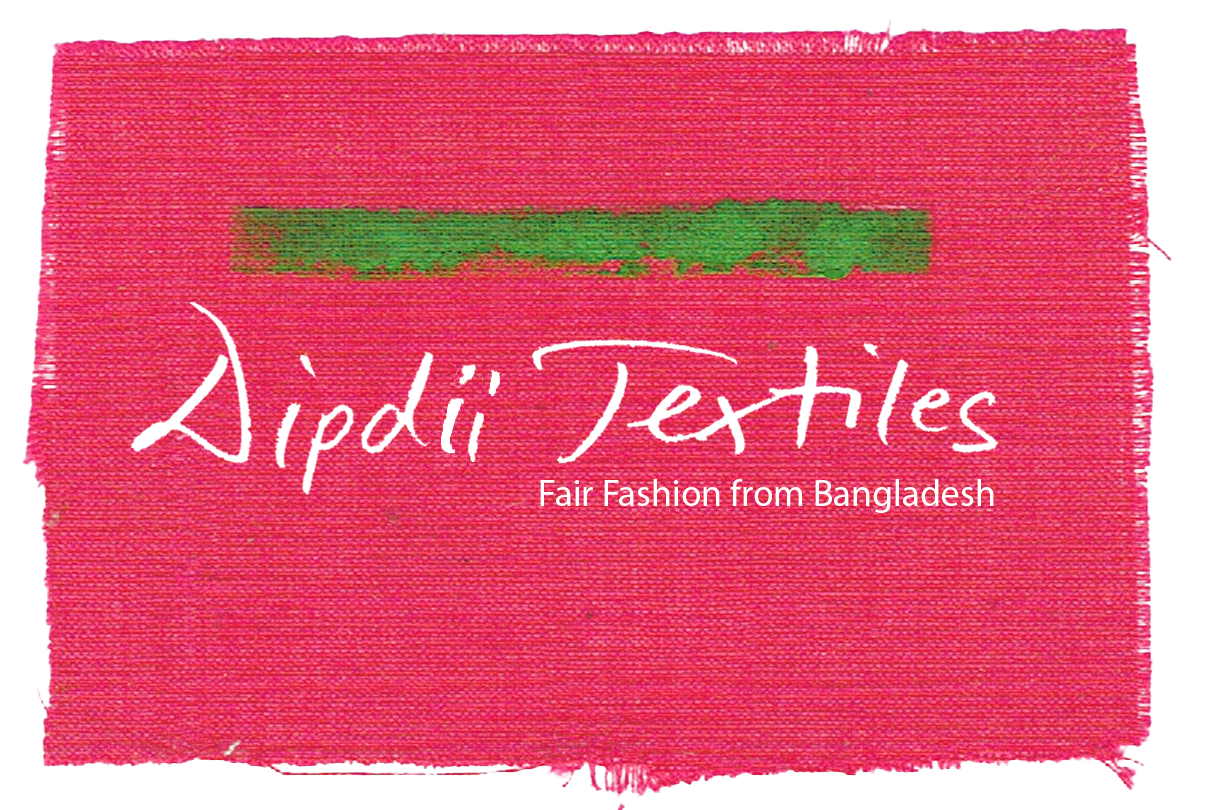Dipdii Textiles
Cares about:
Labor conditions # rural areas # village life # circular economy # local textile tradition # sustainability # costumer patterns
Cares for:
Decentralized production # crafts # income for women # horizontal learning # alternative Made in Bangladesh # rural-urban intervention
Agents of Care:
Tailors # village women # YOU as consumer
©Stefano Mori
ABOUT
Dipdii Textiles - crafted out of local textile traditions - are designed for a decentralized production in the villages of Bangladesh where in general the quality of life and space is both humane and free.
Economic growth is usually linked to an increasing exploitation of resources. Dipdii Textiles follows a different path. Instead of expending resources, they are grafted with time, skills and creativity.
A beautiful solution out of the ordinary.
©Stefano Mori
Background
The clothes from Dipdii Textiles are made in the rural areas in North Bangladesh. They are tailored by hand and crafted out of local textile traditions. Aiming at an improved work opportunities in the villages, the process is as important as the product.
Dipdii Textiles is initiated by Anna Heringer as architect and Veronika Lena Lang as master tailor and is realized in cooperation with the Bangladeshi non-government organization Dipshikha for rural development.
More than four million people, women in particular, are living from the fabrication of textiles in Bangladesh. The objectives of the garment sector merely is to achieve the global standards regarding quality and labour conditions – or in other words: to cheaply produce a perfect standardized t-shirt in safe working conditions. But what is not considered is the wonderful and unique textile culture that Bangladesh owns in rich diversity, nor are the global technological developments taken in account that with great probability will replace part of the manual labour soon.
This project is a Bangladeshi-German cooperation between crafts(wo)men and designers together with a Bangladeshi NGO for village development. It proves the possibility of an alternative “made in Bangladesh” production: participative, sustainable, decentralized, based on the local textile traditions, with every piece being unique and with the purpose to improve the quality of life.
©Stefano Mori
The raw material/ family patterns
In rural Bangladesh a woman gets one sari per year from her family on occasion of the main Muslim or Hindu festival. A man gets one lungi, which is a piece of cloth wrapped around as skirt. When the saris and lungis are worn out, they are traditionally recycled into blankets: about six layers of those cotton clothes are fixed together with hundreds of stitches made by hand.
Over the years with everyday use, the surface layers of the blankets peel off and the hidden layers appear. The vibrant and incredible colourful textured surface is an imprint of its own little family cosmos. These textiles form the basis of this project.
In another upcycling process through the excellent craftsmanship of many women around the villages of Rudrapur and Birgonj these fabrics are turned into clothes in contemporary design.
The Dipdii Textiles clothes are strong in their individuality. They don`t follow a short-term fashion trend. We hope the pieces will be worn over a long time span of years rather than the usual fashion period of weeks. The uniqueness of the textiles, the fairness of the production as well as the emotions linked to the process is the new pride. The bond to the women producing the clothes is reflected in our label, which is the signature of the woman working on that shirt.
Learning from each other
In Bangladesh the continuation of this extraordinary textile culture will be facilitated by the appreciation that will be revived through Dipdii Textiles. For our parts in the world there might be even more to learn: In a way the project can be seen as an attempt to turn the usual trade flow upside-down. Normally the Global North is producing it´s jeans and t-shirts in the Global South. Once worn out the clothes are sent back, often with the result of destroying local cultures and markets. With Dipdii textiles the worn-out clothes are sent in a high quality from the Global South to the North leaving us with the question how to value our everyday culture. For us in the industrialized countries these textiles can be an inspiration and motivation towards the art of recycling and craftsmanship as well as strengthening the sensibility to discover the beauty in the used and ordinary.
Urban-Rural intervention
The majority of Bangladeshis live in rural areas. Rudrapur, which stands for many villages in Bangladesh shows how people are able to build their habitat with their own resources: using their hands, local mud and bamboo. They produce food and many daily goods themselves. The neighbourhoods have developed over generations and social networks are strong. Women feel comfortable to be outside, children enjoy their village as a fantastic and safe playground. Elderly people find places to keep watch over a goat and to chat under a tree. As a result the village has a high degree of embedded freedom.
But there is a lack of jobs. This is why people leave their villages.
From all around the country people move to the urban textile production hubs.
They leave their own homes in the villages to stay in rented rooms.
They pay for childcare, for water, for sanitation, for transportation.
Women don`t feel safe in public areas.
But there is another way, an alternative which avoids the pressure caused by the demand for mass-produced clothes. Dipdii textiles initiates a decentralized textile manufacturing process directly in the respective village.
Credits
textile design: Veronika Lena Lang, Anna Heringer
concept: Anna Heringer
technical guidance: Veronika Lena Lang
project management: Lucía Perianes
cooperation partner in Bangladesh: Dipshikha (NGO for rural development) and Shanti Partnerschaft Bangladesh
production management: Dipshikha
manufacturing: women of Rudrapur and Birgonj, Bangladesh
trainers in Bangladesh: Suref, Sudoshon






